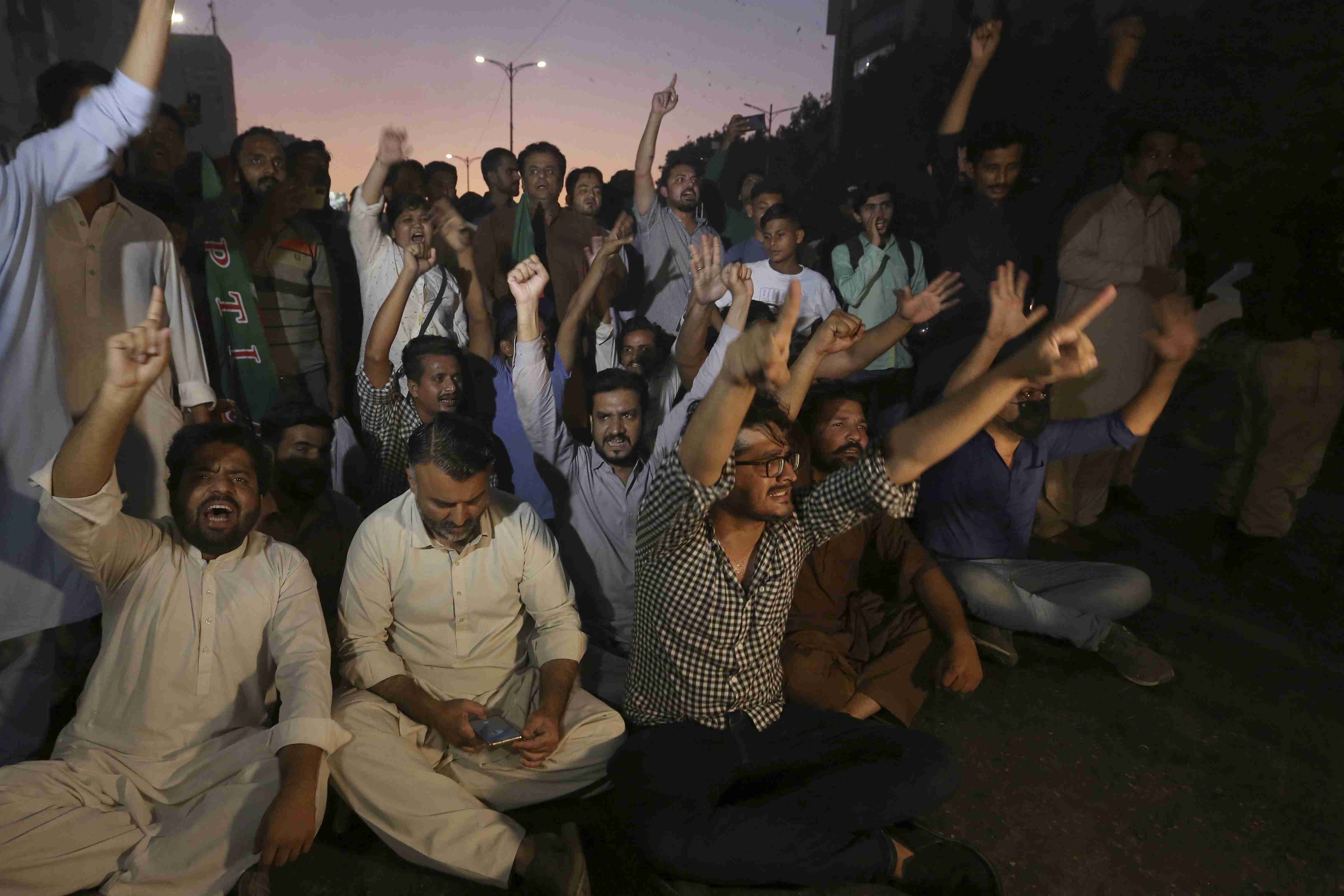Caught in an abyss
Given its murky track record, it’ll be a Herculean task for the Pakistan’s military to extricate itself from allegations of staging assassination against Imran Khan

Judging by history, there is nothing new in assassination of political leaders, military dictators and despots in Pakistan. Providentially, former Prime Minister Imran Khan, who had to make a premature exit as the Prime Minister before completion of his term, narrowly escaped an assassination in Gujranwala on November 3, when a lone gunman shot at him, injuring his leg.
Chronologically speaking, October 16, 1951, stands out in the history of Pakistan as a date when the first Prime Minister of the country, Liaquat Ali Khan, was shot dead during a public rally in Rawalpindi, destroying the basis of a fragile democratic institution of a new nation. The bullets fired in 1951 led to the first major assassination but, unfortunately, it was not the last as Pakistan Tehreek-e-Insaf (PTI) Chairman and former Premier Imran Khan has become the latest to join the long list of politicians, facing such an attack. The shootings and terrorist attacks that have continued at frequent intervals for more than seven decades, took the lives of several politicians, including former Premier Benazir Bhutto, her brother Murtaza Bhutto, Gujarat's Chaudhry Zahoor Elahi, Punjab's former Home Minister Shuja Khanzada, ex-minister for minorities, Shahbaz Bhatti, and many more.
Tragically, Benazir was murdered on December 27, 2007, by a suicide bomber after she had just finished an election rally in Rawalpindi. Her brother was shot dead along with six others in a police encounter near his home in Karachi on September 20, 1996. Again, on August 17, 1988, military dictator and then President of Pakistan, Gen Zia ul Haq died in a plane crash after ruling the country with an iron hand for 17 long years. His death is also strongly suspected to be a case of murder stemming out of a larger conspiracy.
Meanwhile, the suspect, who was arrested by the Punjab Police soon after he shot Imran Khan, has confessed that he shot the PTI chief as Imran was "misleading" the nation. The suspect also revealed that he had intended to do so ever since the deposed premier left Lahore and started his long march. He denied if anyone else was behind him.
In a related development, party Secretary-General Asad Umar claimed on November 3 that Chairman Imran Khan suspects three people — Prime Minister Shehbaz Sharif, Interior Minister Rana Sanaullah, and a senior military officer Maj. Gen Faisal for being behind the assassination attempt. Imran Khan further claimed that he had advance information that these people could be involved in the assassination attempt. Umar disclosed these facts during a video statement. Quoting the PTI Chairman, Umar demanded that all these three people must be removed and if not, then the party would hold countrywide protests as Pakistan could not be run in this manner anymore.
Significantly, for the first time in Pakistan's 75-year history, protests took place against Maj. Gen Faisal, all-powerful Peshawar Corps Commander, outside his house for having a hand in Imran Khan's assassination attempt. This is indeed disturbing and the signs are ominous.
Meanwhile, the US on November 3 condemned the attack on former Pakistan Prime Minister Imran Khan and said violence had no place in politics, adding that America was deeply committed to a democratic and peaceful Pakistan. Further, in an official statement, US Secretary of State Antony Blinken condemned the assassination attempt and wished Imran Khan and all others who were injured, a quick recovery.
In another related development, in an apparent bid to do some face-saving, the Pakistan Army has "highly" condemned the firing incident and claimed that the military has offered sincere prayers for the precious life lost and speedy recovery of Imran Khan. However, it is highly unlikely that after the sensation caused by the assassination attempt on Imran Khan, the all-powerful Pakistan military will be able to do the damage control as: i) Imran Khan has been the eyesore of the military during his rule and towards the later years, he fell out with the Army Chief, Gen Bajwa over the appointment of the ISI Chief; ii) In Pakistan's history, ISI and the military have always been ambitious and have been blatantly interfering into the internal affairs of the political machinery and, many a times, it caused a coup d'état and usurped power; and iii) as it is, Army and the ISI's credibility within Pakistan and abroad is very low because it is considered to be highly politicized, corrupt, nefarious and harboring home-grown terrorists, mainly using them against political adversaries and abetting cross border terrorism in India and Afghanistan. Very recently, the mysterious cold-blooded killing of a Pakistani journalist Arshad Sharif in Kenya for 'mistaken identity' has raised eyebrows on the Army's role in exterminating the journalist who was thought to be close to Imran Khan.
Therefore, in other words, Army and the ISI will find it extremely difficult to extricate themselves from their alleged conspiracy in the November 3 Imran Khan assassination attempt case. In the meantime, further interesting revelations are expected to make the case more gripping as Pakistan slips into a certain political tumult and uncertainty, as the conspiratorial mystery is unlikely to come out of the mist in the foreseeable future.
The writer is a retired IPS officer, a security analyst and a former National Security Advisor to the PM of Mauritius. Views expressed are personal



